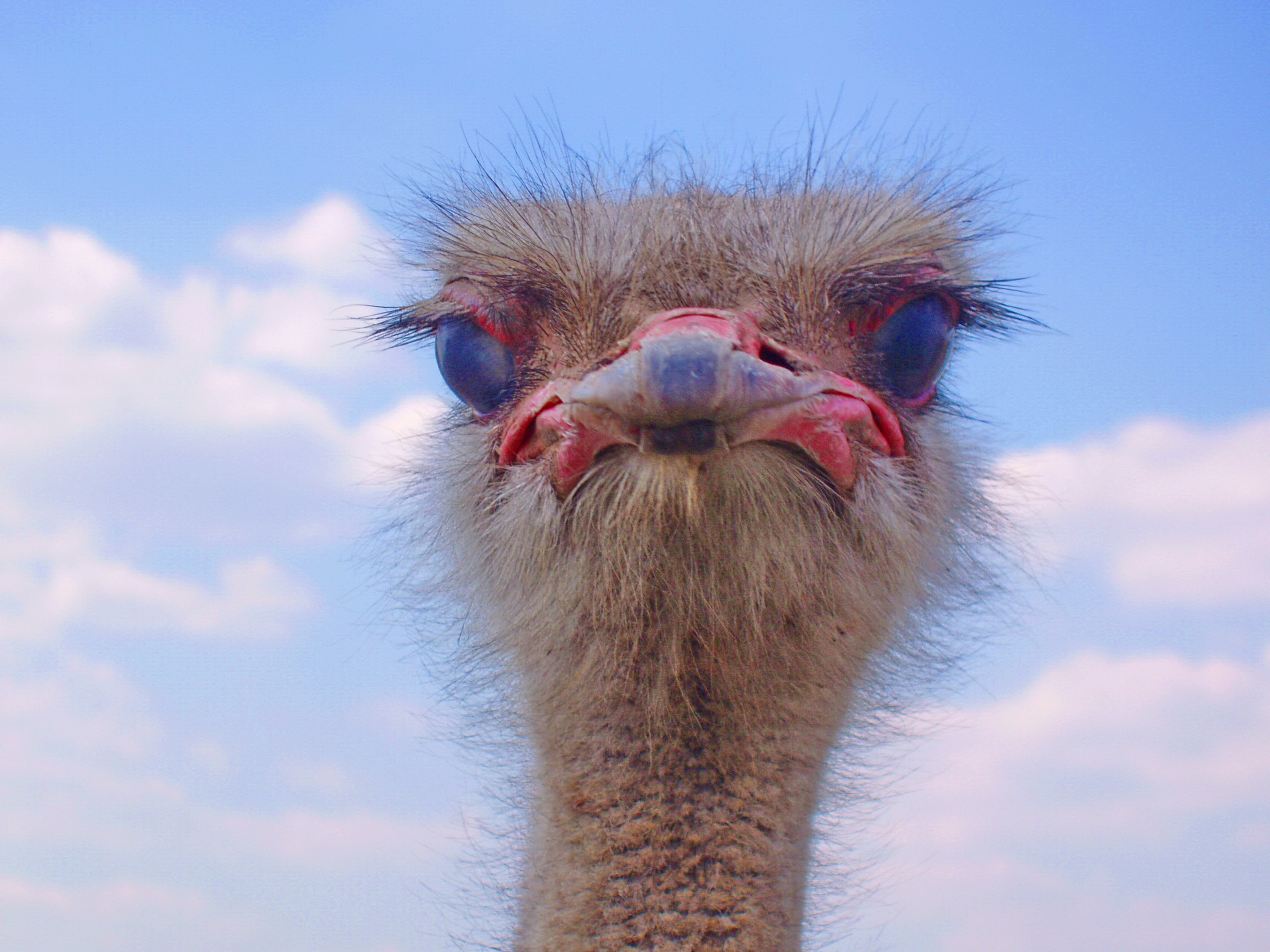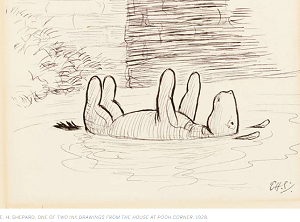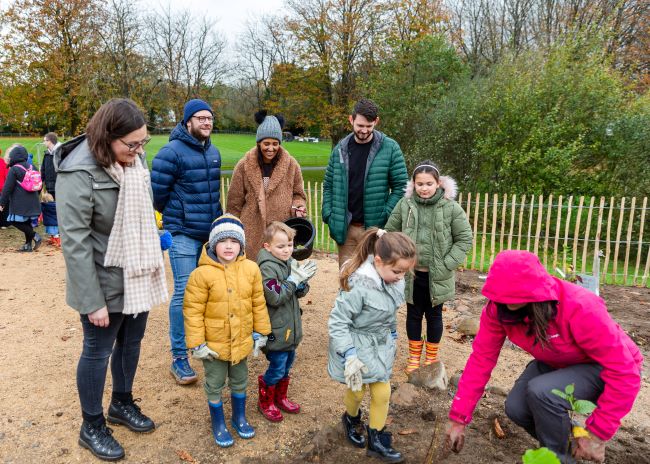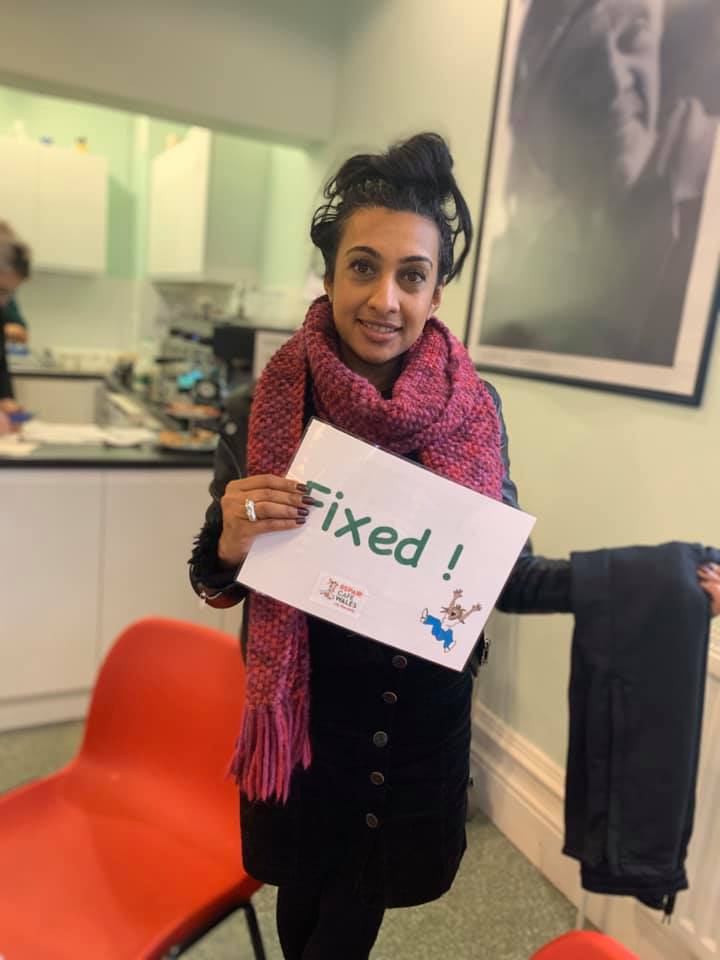Amdani! helps everyone to play their part
Published: 9 Nov 2022
Most of the life on this planet – animals, flora, fauna, is at risk of extinction, including ourselves, if we don’t start treating the climate emergency like a real emergency. But it can’t be left just to governments to solve. Every single one of us must look at our own lifestyles if we are to achieve the level of change necessary to avoid catastrophic climate change.
Friends of the Earth Cymru has launched a new bilingual website resource called Amdani! showing what changes we can make to our own lifestyles to reduce our own impact on the planet.
Are you an ostrich, a rabbit or a tiger?

Daily we’re told that unless we act within a rapidly diminishing window of time, we’ll make ourselves, and most other species in our beautiful and fragile world, extinct, leaving behind a world that will be inhospitable to most life today.
Now we’ve finally accepted the reality of climate change, you’d think we’d be able to deploy our enormous brains to save our planet. After all, we pride ourselves on being the most advanced species on Earth.
But when faced with the enormity of the climate and ecological crisis, what do we do? Some of us are ostriches, with our heads are stuck firmly in the ground. All we want to do is go about our lives as normal. We shut out what we don’t want to hear, or we feel overwhelmed with the general business of surviving every day. It’s more than enough to make sure the bills are paid, there is food on the table and the house is warm.

Or we are Eeyore, concluding we are all doomed so what does it matter anyway? What effect can I have on the future of the planet? Besides, surely only the rich can afford to be eco-friendly!
With some of us, it’s a case of flight or fight. Some of us are like frightened rabbits, paralysed by fits of climate-anxiety. We may lurch from one thing to another, not sure what do to or if what we are doing is making a difference, while the tigers may take to the streets to fight for change. Sometimes I am an ostrich, sometimes a tiger and at other times a rabbit. I can be all three in quick succession, and even at the same time!
Human beings are complicated!
Rabbits aren’t bad

But being a rabbit isn’t all bad! A recent study led by Lorraine Whitmarsh, Director of Centre for Climate Change and Social Transformations (CAST), led by Cardiff University, found that climate anxiety ‘could be a motivating force for taking action to reduce emissions. This included saving energy, buying second-hand, borrowing, renting, or repurposing items.’
So, if you are sometimes kept up at night, worrying about the future of the planet, taking climate action, whether that’s doing something with other people in your community, or taking steps to make your own life more eco-friendly can help channel your climate anxiety into something positive.
Research shows that taking climate action, whether that is with others or as individuals, can improve mental wellbeing.
It's the job of governments, isn't it?
Some tigers might say that doing all this stuff might make us feel better, but it’s hardly going to have a big effect on the planet! It’s the job of governments, not us, to deal with what David Attenborough calls “the biggest threat to security that modern humans have ever faced”.
But research suggests that we can only solve this problem if we work together, and action is taken across all levels of society. We are all part of the solution.
The Climate Change Committee's '2021 Progress Report to Parliament' concluded that the ‘UK will fail to reach climate targets unless the Government drives behaviour change’.
This is the golden thread running through The Welsh Government’s draft strategy on climate change and public engagement. In the forward, Julie James, Wales Minister of Climate Change observes: ‘Everyone in Wales must do their bit … large reductions in the amount of energy and natural resources we use is now necessary in terms of the ways we live our everyday lives’ (page 7)
Of course, big picture change is needed. Governments, corporations, and businesses all need to act swiftly but individually, we all need to be persuaded that we can still make a difference. By changing our lifestyles, we’ll embed new habits that are healthier for us and the environment.
The power of numbers

If it was just one person taking action, the difference wouldn’t be felt but imagine most of us doing so – even half of us!
For the Welsh Government, the first challenge is ensuring people can understand how climate change ‘connects to the way they live their lives’ and persuade them that they can make a positive difference (page 17).
The main aim of Amdani! is to enable people to join the dots themselves, and to give them the knowledge and motivation to come up with their own plan of action.
But I can’t afford it!

You may worry that you don’t have the money to be green. Owning an electric car isn't feasible for many of us at the moment and we just can't afford to retrofit our houses with air or ground source heat pumps. Even buying sustainable products can be more costly.
A key part of the Welsh’s governments climate change and public engagement strategy is to remove as many barriers as possible to enable people to make the right decisions for the planet.
But going green may cost less than you think. Walking costs nothing and keeping items for as long as possible rather than replacing them costs nothing. Buying second hand or repairing items is often cheaper and consuming less is one the best ways we can reduce our impact on the planet. When we do buy new, it makes sense to buy sustainably produced items that are made to last.
Low hanging fruit
It’s daunting when you realise just how many changes we could make to our lifestyles. Where do we start? Buying less could be the first thing we could do to reduce emissions, and that will help save money too.
It’s best to start with easy things that will impact our lives the least. For instance, the switch service makes changing bank account to a more ethical provider much easier than it used to be.
Also, it’s best to introduce bigger changes gradually. For instance, if you can’t stomach giving up meat, try meat free days or simply reducing your intake.
Overcoming inertia
When we try to change our lifestyles, it’s worth remembering that embedding new habits takes time. Very likely, we’ll lapse into our old ones from time to time. When this happens, we must forgive ourselves and not just give up. Here are some tips.
Amdani!
Amdani! is Welsh for ‘let’s do it’. Think of it as a climate bucket list - something to be worked through and each action to be ticked off when done so you can reduce your own carbon footprint.
It’s divided into different lifestyle areas such as food, energy, money, fashion, and transport.
Browse today and draw up your own plan of action.

